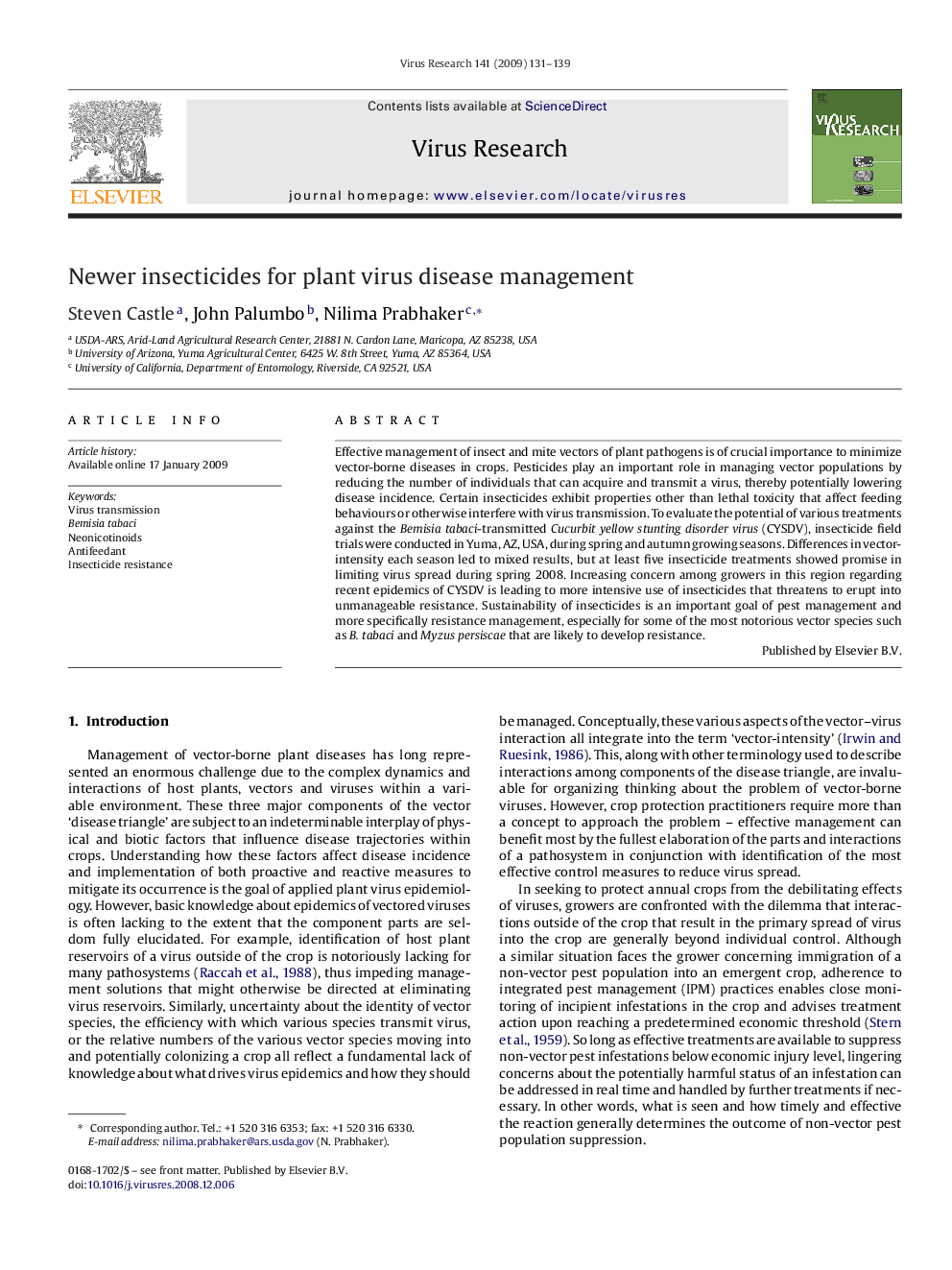| Article ID | Journal | Published Year | Pages | File Type |
|---|---|---|---|---|
| 3430186 | Virus Research | 2009 | 9 Pages |
Effective management of insect and mite vectors of plant pathogens is of crucial importance to minimize vector-borne diseases in crops. Pesticides play an important role in managing vector populations by reducing the number of individuals that can acquire and transmit a virus, thereby potentially lowering disease incidence. Certain insecticides exhibit properties other than lethal toxicity that affect feeding behaviours or otherwise interfere with virus transmission. To evaluate the potential of various treatments against the Bemisia tabaci-transmitted Cucurbit yellow stunting disorder virus (CYSDV), insecticide field trials were conducted in Yuma, AZ, USA, during spring and autumn growing seasons. Differences in vector-intensity each season led to mixed results, but at least five insecticide treatments showed promise in limiting virus spread during spring 2008. Increasing concern among growers in this region regarding recent epidemics of CYSDV is leading to more intensive use of insecticides that threatens to erupt into unmanageable resistance. Sustainability of insecticides is an important goal of pest management and more specifically resistance management, especially for some of the most notorious vector species such as B. tabaci and Myzus persiscae that are likely to develop resistance.
